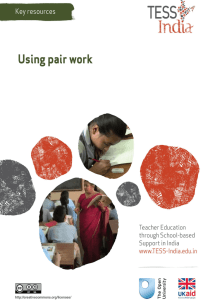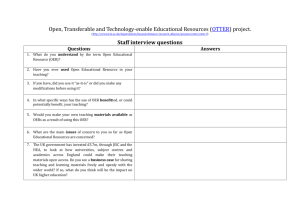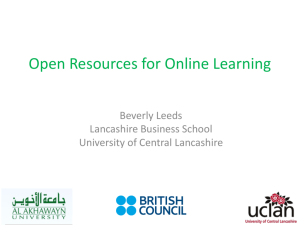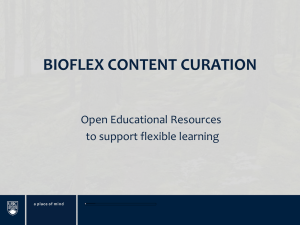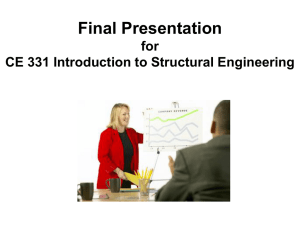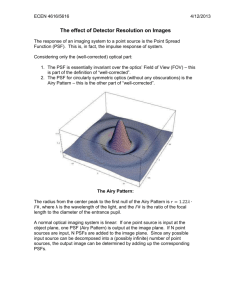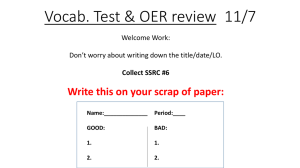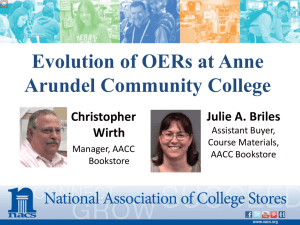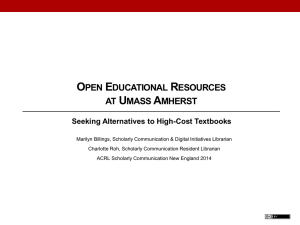Professional Standards/Professional Values in HE
advertisement
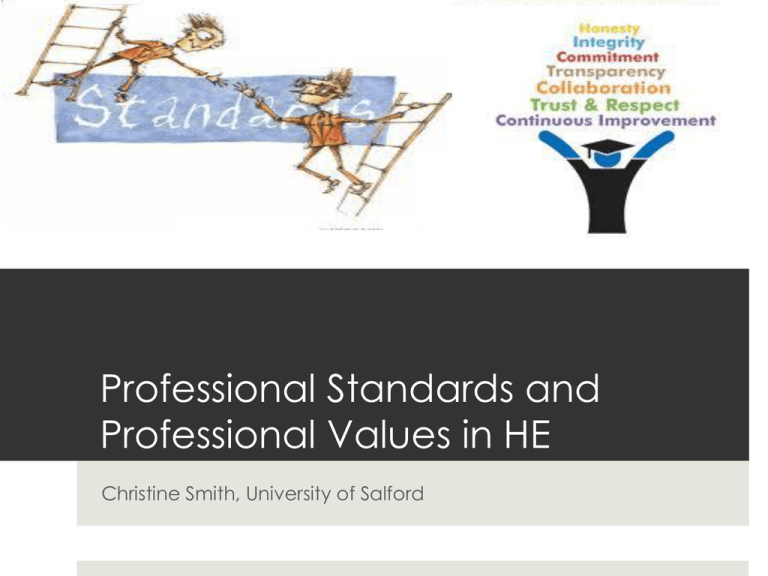
Professional Standards and Professional Values in HE Christine Smith, University of Salford Professional standards/professional values in HE The UK Professional Standards Framework (UK PSF) for teaching and learning in HE is a descriptor based approach, whereby HE institutions determine their own criteria in the application of the framework. In order to demonstrate application of the standards, six areas of activity, core knowledge and professional values derived from the Higher Education Academy’s existing Accreditation Scheme are applied to learning outcomes and assessment activities within an HE institution’s professional development programme. This presentation focuses on the UK PSF, but specifically on the professional values within the framework. Professional values in HE for teaching and learning can be defined as cognitive representations of desirable abstract goals relating to teaching and support of learning that transcend specific situations but that are important to or valued within the HE academic context. Values are important for drawing our attention to important issues around, for example, equity and quality in the student experience. In the UK PSF they are articulated around notions of respect and commitment, such as a commitment to the development of learning communities. These professional values can also be described as the professional principles that guide decisions and actions for teaching and support of learning within HE academic practice. Whilst it is clearly fundamental that such values are implicit in a professional approach to teaching and practice, it is less clear how we can promote adherence to such values among a developing professional community. It is inherently problematic to suggest values are things which we could, or indeed should attempt to teach within professional development programmes, such as those for early career academic staff. There is also concern amongst some academic development practitioners that the professional skills and values associated with teaching diverse students are not well understood in the sector and that academic development programmes could do more to develop these. In the Learning to Teach Inclusively project at the University of Wolverhampton, original video clips of authentic classroom practice have been developed as Open Educational Resources: used to illustrate principles in practice and to provoke discussion around inclusive learning and teaching. The presentation will build on the project work to suggest and demonstrate how Open Educational Resources (OERs) could offer an innovative approach to encouraging engagement with the UK PSF. In particular the presentation will explore and reflect upon how we might employ OERs as authentic artefacts for promoting engagement with and exploration of the more abstract professional values of the UK PSF. It will consider the use of OERs for eg stimulating recall; for prompting discussion; and for critiquing professional practice. It will suggest this use of OERs with the intent of identifying and surfacing for inspection, in explicit ways, the tacit values and the extent to which these are underpinning teaching and the support of learning. Advance organiser The UK PSF and its professional values OERs as artefacts: teaching-as-design (Goodyear & Retalis, 2010) Taxonomies for learning technologies Tools for thinking, for communicating and for acting Exploring the video resources of the Learning to Teach Inclusively course Reflection and discussion UK PSF Sector wide standards for teaching and support of learning in HE since 2006 Descriptor based framework for determining institutional criteria in its application Areas of activity, core knowledge and professional values Review in progress with revised version available from 2nd November 2011 Professional Values in PSF Respect for individual learners Commitment to incorporating the process and outcomes of relevant research, scholarship and/or professional practice Commitment to the development of learning communities Commitment to encouraging participation in HE, acknowledging diversity and promoting equality of opportunity Commitment to continuing professional development and evaluation of practice Critiquing ‘teaching’ of values Values as cognitive representations of abstract concepts Implicit in ‘good’ professional practice and important to the HE academic context Transcending specific situations : a way of being? Less clear how we can promote adherence to such values including among a developing professional community Problematic to suggest values are things which we could, or indeed should attempt to teach within professional development programmes Concerns have been raised that professional skills and values associated with teaching diverse students are not well understood Could academic development programmes do more to develop these? How might they? OERs and the Open Education movement The Open Education movement Open Educational Resources: eg courseware and content in variety of formats; software tools; learning objects; and open courses OERs to create, adapt and use Notions of convenience, effectiveness, sustainability and availability OERs as artefacts of authentic practice Teaching as design Design of good learning tasks Design and management of supportive learning environments Links especially to inquiry based learning contexts Good tasks, identifying tools and resources to make success of tasks, monitoring progress Taxonomies for learning technologies As media for accessing and for studying learning material As media for learning through inquiry As media for learning through communication and collaboration As media for learning through construction For learners’ assessment For digital and multimedia literacy Focus here on tools for … Thinking Communicating and discussion Action Video example Watch the OER video Consider what values might be implicit in the example OER How you might use for yourself and/or with your learners: thinking; communicating; acting; other? Discuss in groups Reporting back in plenary OER video: sharing stories http://player.vimeo.co m/video/20017357 To conclude Immersive environments and experiences Influencing practice Gaining experience and understanding for critique, for reflection and for action Open module FDOL to join to discuss these things further Thank you for your attention c.smith@salford.ac.uk Time for lunch I think!
